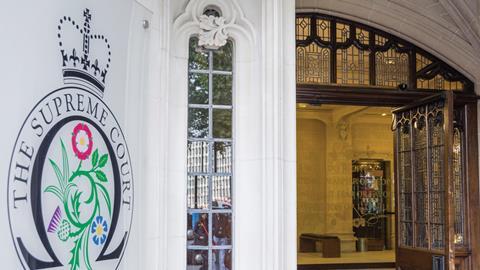Three men found guilty of carrying a Kurdistan Workers Party (PKK) flag are appealing against their convictions at the Supreme Court, arguing that a ‘strict liability’ offence for carrying the flag of a proscribed organisation is ‘incompatible’ with their right to freedom of expression.
Rahman Pwr, Ismail Akdogan and Rotinda Demir were convicted of an offence under section 13 of the Terrorism Act 2000 for carrying a PKK flag at a protest in London about war crimes allegedly being committed in Afrin, Syria in January 2018.
The trio challenged their convictions at the Crown Court and then the High Court, which dismissed their appeal last year. They have now appealed to the UK’s highest court, which last week was told that a strict liability offence is inconsistent with the presumption of mens rea.
Section 13 makes it an offence to wear, carry or display an article ‘in such a way or in such circumstances as to arouse reasonable suspicion that he is a member or supporter of a proscribed organisation’.
Joel Bennathan QC, for the appellants, argued in written submissions that the section 13 offence is ‘silent as to mens rea’. He also said that his clients’ convictions were incompatible with Article 10 of the European Convention on Human Rights.
‘There was no finding in the Crown court that they knew what flags they were carrying, intended to express support for any proscribed organisation, or incited anyone to violence,’ Bennathan argued. ‘The European Court of Human Rights case law, properly understood, does not permit a strict liability offence of this nature.’
‘Irrespective of the facts of their cases, the Divisional Court’s approach to section 13 would allow a protester with an innocent explanation to be convicted,’ he added. ‘How is such an arbitrary offence accessible or foreseeable?’
Louis Mably QC, for the Director of Public Prosecutions, said in written submissions that ‘the clear intention of parliament was to create an offence of strict liability’. Section 13 ‘constitutes a proportionate interference with the freedom of expression’, he added.
At the conclusion of the hearing, Lord Lloyd-Jones said the panel of five justices would reserve judgment to a later date.




























3 Readers' comments